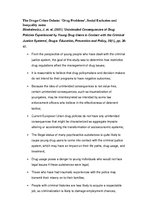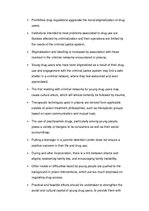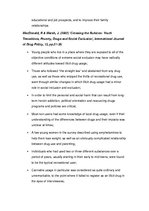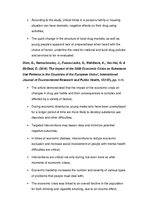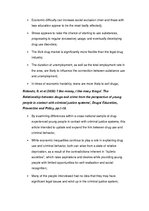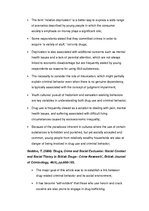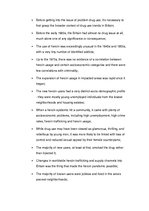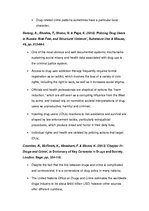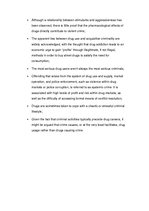-
The Drugs - Crime Debate: "Drug Problems", Social Exclusion and Inequality
Coomber, R., McElrath, K., Measham, F. & Moore, K. (2013) 'Chapter 21: Drugs and Crime', in Dictionary of Key Concepts in Drugs and Society. London: Sage. pp. 104-110.
• Despite the fact that the link between drugs and crime is complicated and controversial, it is a cornerstone of drug policy in many nations;
• The United Nations Office on Drugs and Crime estimates the worldwide drugs industry to be about $400 billion USD, however other sources offer different numbers;
• Although a relationship between stimulants and aggressiveness has been observed, there is little proof that the pharmacological effects of drugs directly contribute to violent crime;
• The apparent ties between drug use and acquisitive criminality are widely acknowledged, with the thought that drug addiction leads to an economic urge to gain "profits" through illegitimate, if not illegal, methods in order to buy street drugs to satisfy the need for consumption;
• The most serious drug users aren't always the most serious criminals;
• Offending that arises from the system of drug use and supply, market operation, and police enforcement, such as violence within drug markets or police corruption, is referred to as systemic crime. It is associated with high levels of profit and risk within drug markets, as well as the difficulty of accessing formal means of conflict resolution;
• Drugs are sometimes taken to cope with a chaotic or stressful criminal lifestyle;
• Given the fact that criminal activities typically precede drug careers, it might be argued that crime causes, or at the very least facilitates, drug usage rather than drugs causing crime.
…
Moskalewicz, J. et. al. (2021) ‘Unintended Consequences of Drug Policies Experienced by Young Drug Users in Contact with the Criminal Justice Systems’, Drugs: Education, Prevention and Policy, 28(1), pp. 36-47. • From the perspective of young people who have dealt with the criminal justice system, the goal of this study was to determine how restrictive drug regulations affect the management of drug issues; • It is reasonable to believe that drug policymakers and decision-makers do not intend for their programs to have negative outcomes; • Because the idea of unintended consequences is not value-free, certain unintended consequences, such as traumatization of youngsters, may be misinterpreted as intended by some law enforcement officers who believe in the effectiveness of deterrent tactics...

